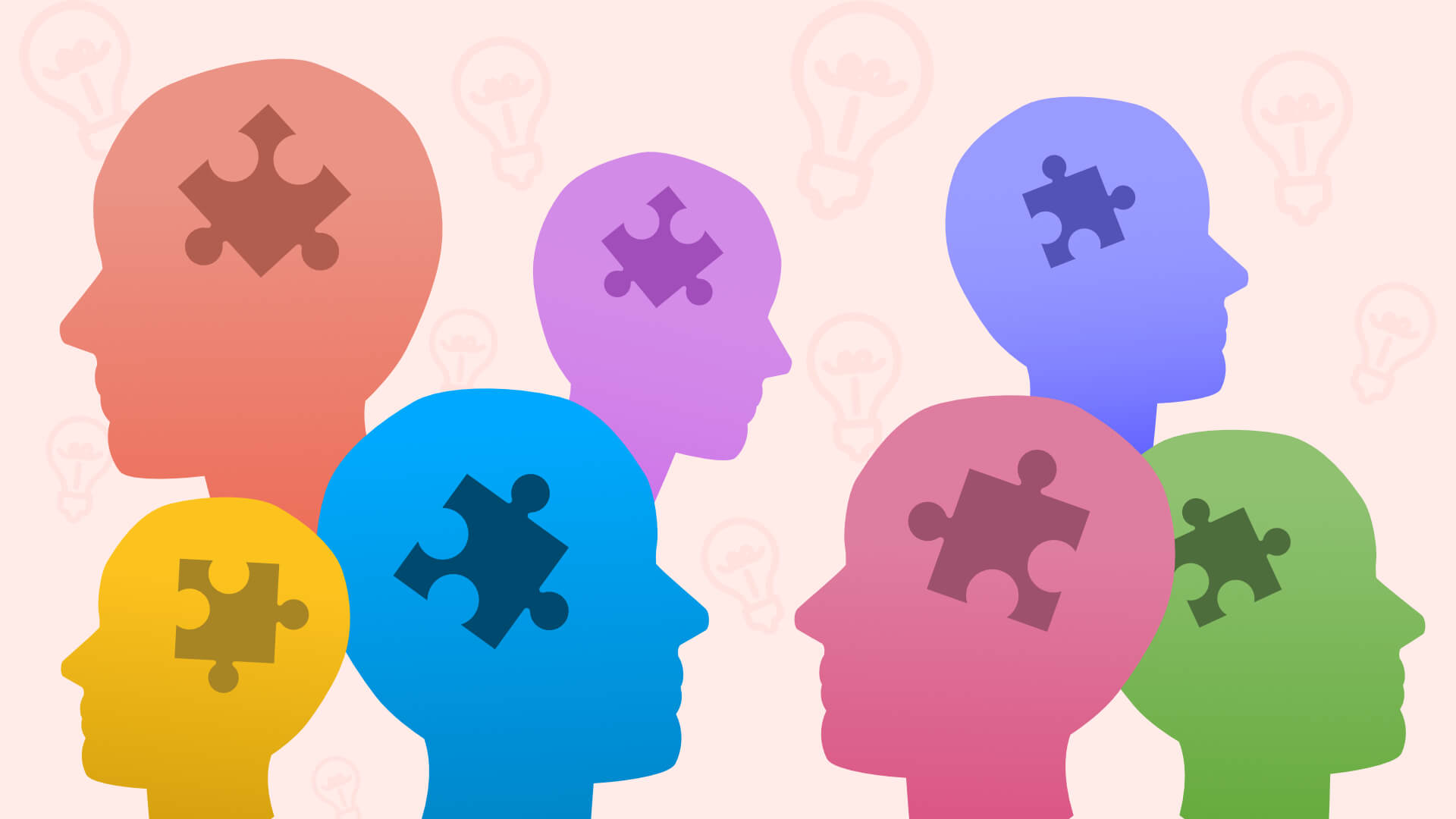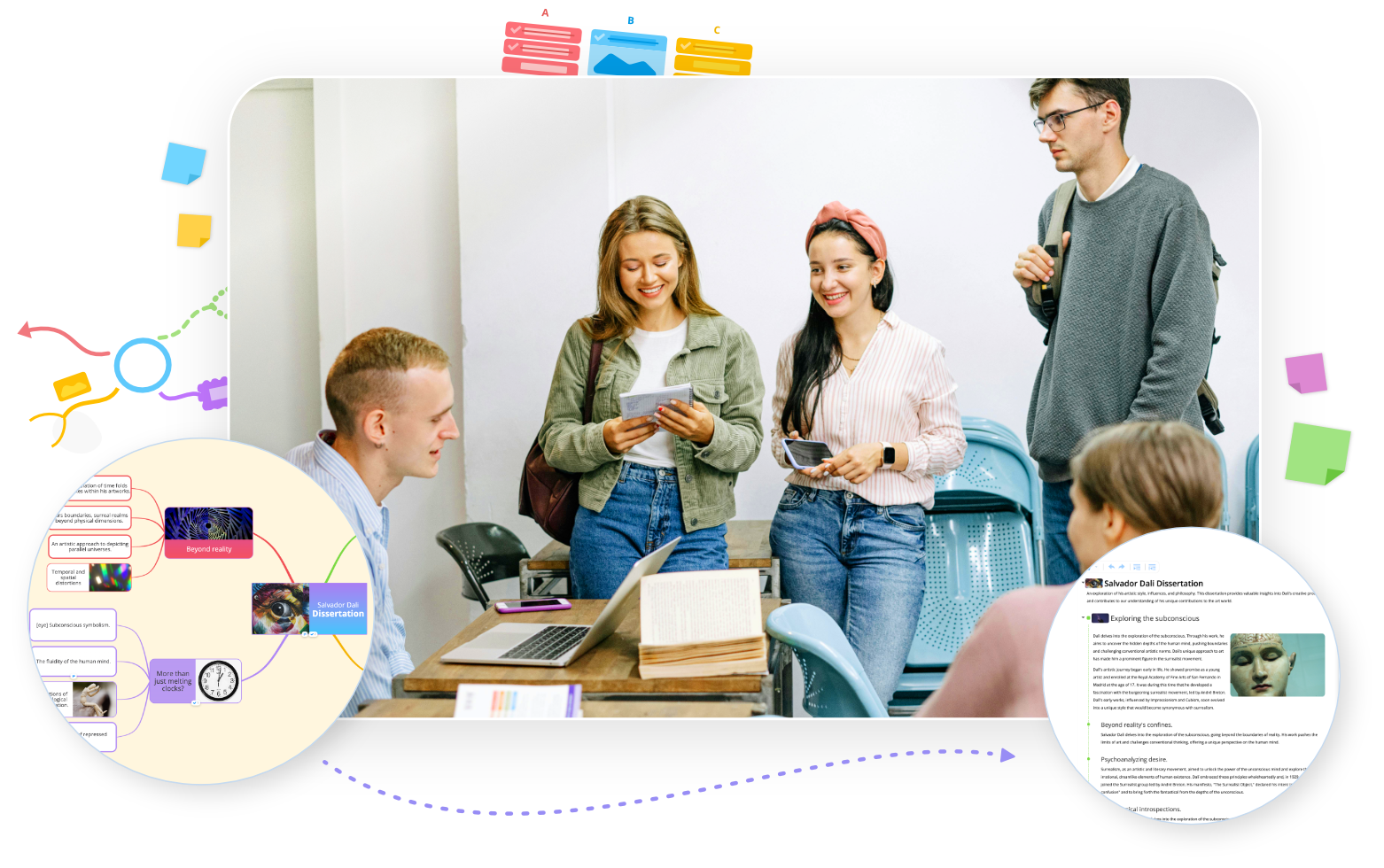It’s no secret that our differences are what make us special. Whether it’s your personal style, talents, or hobbies, the things that make you, you are important. An eclectic society is what gives life its flavour and variety.
The same, of course, goes for neurodivergent individuals. Neurodivergence was once wrongly interpreted as something which limited a person, but we’re now aware that the neurological differences which characterise neurodivergence come with a whole host of benefits, too.
Neurodivergence refers to conditions such as dyslexia, dyspraxia, ADHD, and autism (though this is a far from exhaustive list), and the alterations in the brain which produce these variations are also responsible for enabling an entirely unique and often creative way of seeing the world. In fact, some of the best thinkers and biggest innovators were (or are) neurodivergent… hardly surprising given their propensity for originality.
In the same way that neurodivergence allows people to see past conventional modes of thinking, mind maps – by mirroring the brain’s natural process for idea generation and sequential thinking – empowers people to access creative ideas they might not have reached with other methods. Perhaps it’s no coincidence, then, that mind maps are considered especially accessible for many neurodivergent individuals. After all, both ditch the status quo in favour of innovative thinking.
Still, as we learn to prize inclusivity on both a societal and human level, it should go without saying that helping people “see” and understand neurodiversity is incredibly important to a fair and prosperous society. Keep reading to find out more.
All this is in mind, what could be better than to celebrate neurodivergent individuals via mind maps? Here we take a look at five neurodivergent individuals who have changed the world with mind maps celebrating them and their work below.
Greta Thunberg

Greta Thunberg needs no introduction. She is a climate activist who has shown that while actions speak louder than words, a combination of action and words can superpower a cause and make people pay attention. From her very first school strike at the age of fifteen to being named ‘Person of the Year’ by Time magazine, Greta has been making waves when it comes to changing attitudes, policies and ideals around the climate emergency. Greta has also been outspoken about being autistic and how this has helped her in her pursuit to change the world – from being hyper focused on her goal to being ultra accepting of others, Greta proves that neurodivergence can help you achieve incredible things! Without her exceptional intelligence and tenacity, there’s no doubt that the campaign for a greener world would be set back considerably.
Open up our celebratory mind map to find out more about Greta, and her achievements.
Muhammad Ali

Muhammad Ali is one of the most celebrated sports personalities to have ever lived. Aptly nicknamed “The Greatest”, Muhammad didn’t only take the world of boxing by storm, he was also a passionate philanthropist and activist. While it’s easy for us to look at Muhammad’s success from the perspective of many years later and see it as inevitable, that wasn’t necessarily how it felt at the time. Being dyslexic, Muhammad hated reading and was often wrongly labelled “dumb” by his teachers. Of course, that couldn’t have been further from the truth, as is evidenced by everything he went on to achieve – including winning an olympic gold medal at the age of 18, becoming the world heavyweight at 22, and being named the United Nations Messenger of Peace, travelling the world to promote reconciliation, forgiveness and understanding – a truly incredible human being.
Open up our celebratory mind map to find out more about Muhammad, and her achievements.
Satoshi Tajiri

Satoshi Tajiri is a video game designer who created a little game you may just have heard of… that’s right, he’s one of the founders of Pokemon. The franchise is an absolutely huge and undeniable global phenomenon and has remained so for numerous decades. He first came up with the idea in 1990, in the era of the Game Boy and Nintendo, but did not initially anticipate just how well the game would do. Decades later, it is one of the most recognisable games and franchises in the world. Satoshi has autism, and actually struggled in the limited academic atmosphere of school, but it didn’t stop him from going on to create something absolutely out of this world with Pokemon. He is yet another example of how neurodivergence can help trailblaze earth-changing ideas and inventions. Oh, and in case you’re wondering, his favourite Pokeomon is a Poliwag.
Open up our celebratory mind map to find out more about Satoshi, and her achievements.
Maggie Aderin-Pocock

While man has always gazed at the stars and pondered their existence, certain people have taken that interest a little further than others… One of those people is Maggie Aderin-Pocok, a British space scientist and educator. Like so many people on this list, her struggles with dyslexia were not rooted in the condition itself so much as an inflexible education system which meant she had to change schools 13 times. Despite this, Maggie has gone on to have an incredible and important career – receiving an MBE and presenting the BBC’s Sky At Night (among many other things). Her crucial work and determination in overcoming incredibly challenging school years has allowed her to become an amazingly talented science communicator, sharing key knowledge with children and adults alike.
Open up our celebratory mind map to find out more about Maggie, and her achievements.
Mary Temple Grandin

Mary Temple Grandin is one of the leading voices in the world of activism and literature surrounding the humane treatment of livestock. Being autistic, Mary was often misunderstood in childhood and has long had a deep sense of empathy because of that – ultimately, it was this trait which helped fuel her passion for protecting animals from inhumane treatment. As well as her work as an animal behaviourist, scientist and professor, Mary has done incredible work things around autism – both working to support parents of autistic children and coming up with inventions such as the “hug machine” (also known as a “squeeze box”) which helps to soothe hypersensitive people. She was included on a list of Time’s 100 most influential people, the recipient of a whole host of awards including a ‘Proggy’ from PETA, and double helix medal for her support of the autistic community and research into the condition.
Open up our celebratory mind map to find out more about Mary, and her achievements.


